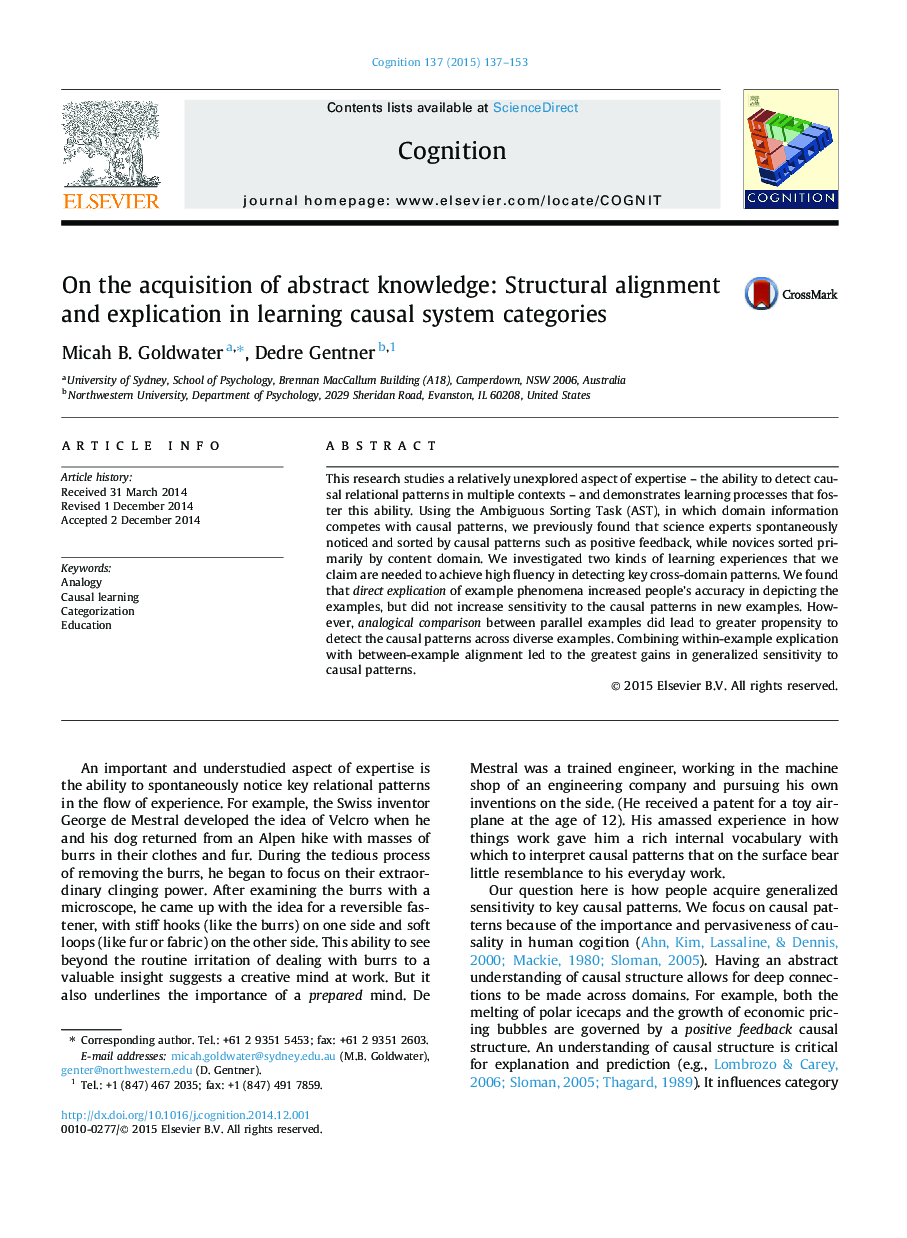| Article ID | Journal | Published Year | Pages | File Type |
|---|---|---|---|---|
| 7287265 | Cognition | 2015 | 17 Pages |
Abstract
This research studies a relatively unexplored aspect of expertise - the ability to detect causal relational patterns in multiple contexts - and demonstrates learning processes that foster this ability. Using the Ambiguous Sorting Task (AST), in which domain information competes with causal patterns, we previously found that science experts spontaneously noticed and sorted by causal patterns such as positive feedback, while novices sorted primarily by content domain. We investigated two kinds of learning experiences that we claim are needed to achieve high fluency in detecting key cross-domain patterns. We found that direct explication of example phenomena increased people's accuracy in depicting the examples, but did not increase sensitivity to the causal patterns in new examples. However, analogical comparison between parallel examples did lead to greater propensity to detect the causal patterns across diverse examples. Combining within-example explication with between-example alignment led to the greatest gains in generalized sensitivity to causal patterns.
Related Topics
Life Sciences
Neuroscience
Cognitive Neuroscience
Authors
Micah B. Goldwater, Dedre Gentner,
